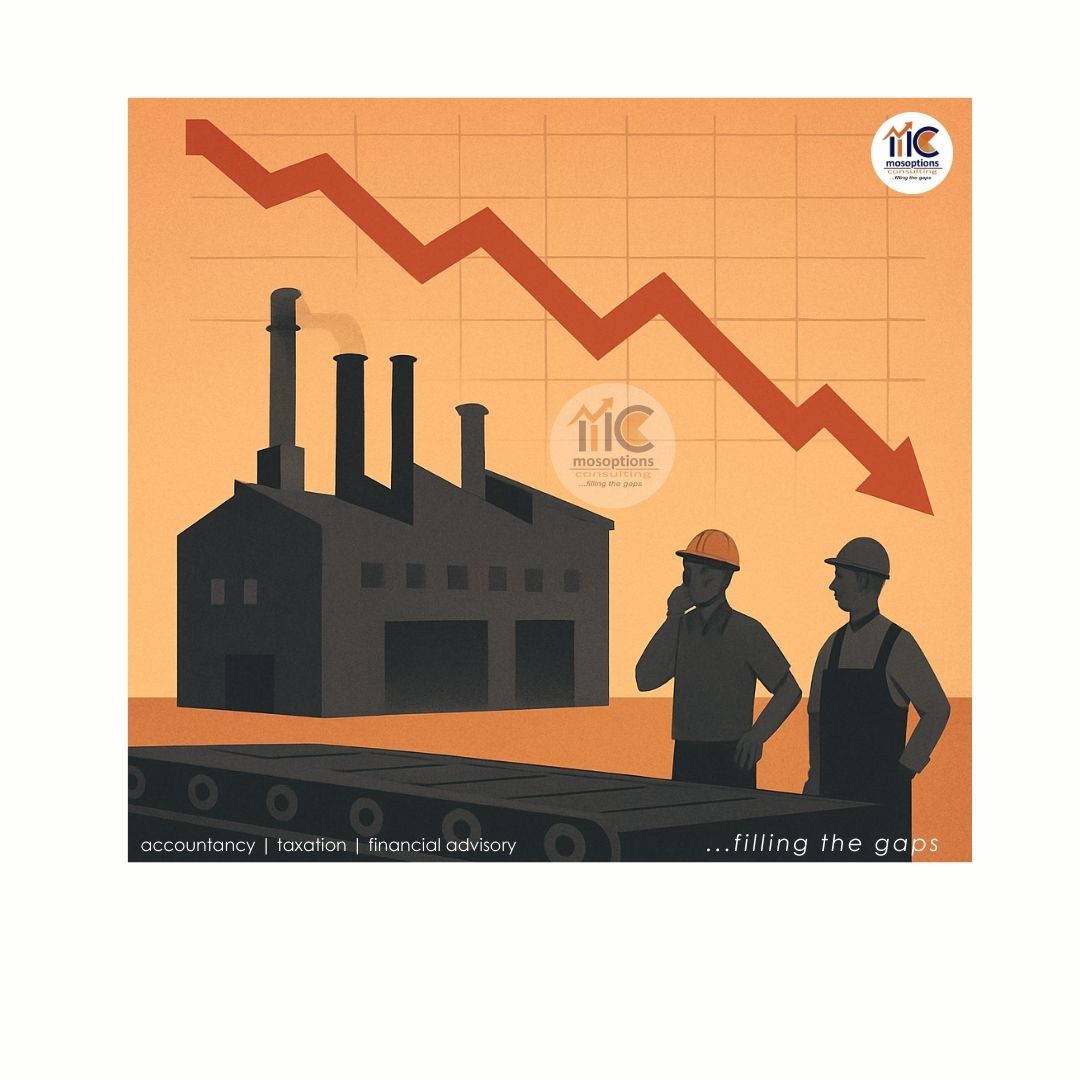Nigeria’s Manufacturing Sector in Crisis: A Close Examination of MAN’s 35% Decline in Market
The Manufacturers Association of Nigeria (MAN) recently released a record 35% decline in its market performance, indicating the crisis in Nigeria’s manufacturing sector deepens. This is not just a temporary decline but a structural warning, one that demands urgent intervention from policymakers, investors, and the broader economy.
Nigeria’s factory sector, which was once a pillar of diversification of the economy, now faces a sharp contraction. The consequences reach beyond the fall in profits; they threaten jobs, price controls, and future industrial plans of the nation.
Understanding the 35% Decline: A Sector in Distress
MAN’s report indicates a sharp decline in the production capacity, profitability, and market demand in several industries, such as:
- Textiles & Apparel – A previously thriving sector, now crippled by high production costs.
- Food & Beverages – Struggling with rising input costs and falling consumer purchasing power.
- Pharmaceuticals – Dependent on imported raw materials, impacted by forex shortages.
- Cement & Construction – Impacted by energy costs and reduced infrastructure spending.
For the majority of manufacturers, this downturn has led to factory shutdowns, retrenchments, and reduced output, further eroding Nigeria’s industrial base.
Root Causes of the Manufacturing Crisis
- Increased Input Costs
- Diesel prices over ₦1,200 per liter in certain locations, shutting down operations.
- Uncertainty in electricity, forcing the use of expensive generators.
- Prices of raw materials going up with rising global supply chain disruptions.
- Foreign Exchange (FX) Issues
- Producers rely on imported material and equipment, but it is practically impossible to obtain forex at official rates. The majority use the parallel market where the exchange rates are 30-40% higher, creating another source of inflation.
- The Central Bank of Nigeria (CBN) has failed to stabilize the naira, and the official rate has been swinging wildly (CBN Data).
- Over-Reliance on Imports
- Despite Nigeria’s vast resources, over 60% of manufacturing inputs are imported, leaving the sector vulnerable to global shocks. Backward integration policies have seen little success due to poor implementation.
- Policy Instability & Regulatory Hurdles
- Frequent tax changes (e.g., VAT increases, excise duties) disrupt business planning.
- Multiple taxation by federal, state, and local governments increases operational costs.
- Irregular power supply remains a key constraint, and manufacturers are employing 40% of production costs on alternative sources of energy (World Bank, 2023).
- High Interest Rates & Limited Access to Credit
- The CBN’s tight monetary policy has increased lending rates above 25%, making it virtually impossible for small and medium manufacturers to obtain cheap loans.
Economic Implications of the Manufacturing Decline
- Rising Unemployment
- Industry has over 5 million Nigerians on its payroll. Factory closing and reduction worsen unemployment, particularly in manufacturing hubs like Lagos, Kano, and Ogun.
- Increased Inflation
- With diminished domestic production, Nigeria becomes even more dependent on imports, and consequently, this costs more. NBS has reported food inflation of 35.4% early in the year 2024, and much of that has been owing to slow domestic manufacturing (NBS Inflation Report).
- Threat to Economic Diversification
- A vulnerable manufacturing base is threatening Nigeria’s efforts at diversifying away from oil dependence, perpetuating economic vulnerability.
The Way Forward: Solutions to Revive Nigeria’s Manufacturing Sector
- Forex Access & Exchange Rate Stability
- The CBN needs to prioritize forex access to real manufacturers at competitive exchange rates.
- Diversification of forex sources (e.g., export incentives, diaspora remittances) would relieve pressure.
- Infrastructure Development
- Power sector reforms, increasing renewable energy and grid stability are imperative.
- Improvement in transport & logistics (roads, rail, ports) will lower cost of production.
- Policy Reforms & Tax Incentives
- Harmonize taxation to remove double levies.
- Grant tax holidays to manufacturers that invest in local raw material procurement.
- Support for Local Sourcing & Backward Integration
- Incentivize agro-processing to lower dependence on imported inputs.
- Strengthen public-private partnerships across strategic industries like steel and petrochemicals.
- Affordable Financing for Manufacturers
- Lower interest rates on industrial loans.
- Step up development bank financing (e.g., Bank of Industry interventions).
The 35% decline in MAN’s market is a canary-in-the-coal-mine moment for Nigeria’s economy. If no action is taken, the manufacturing sector, and by extension, the larger economy, will continue to decline.
Policymakers must act quickly to stabilize forex, reduce energy costs, and improve infrastructure. Businesses must adopt new approaches, such as local procurement and automation, to remain competitive.
At Mosoptions, we’re dedicated to demystifying economic trends so that policymakers and businesses can make informed choices. Nigeria’s industrial future depends on data-driven choices and bold reforms.
Breaking the noise, tracking the trends, and seeing the numbers, for the better.
Filling the gaps between data and decisions.

